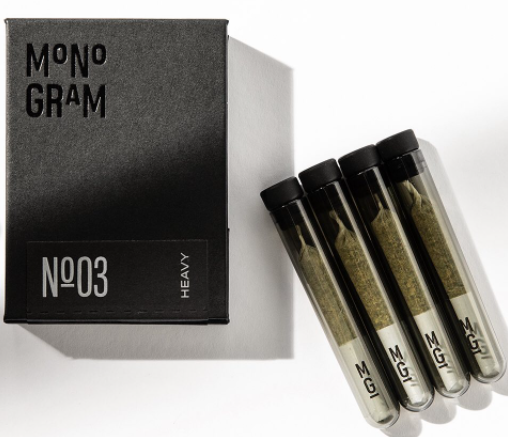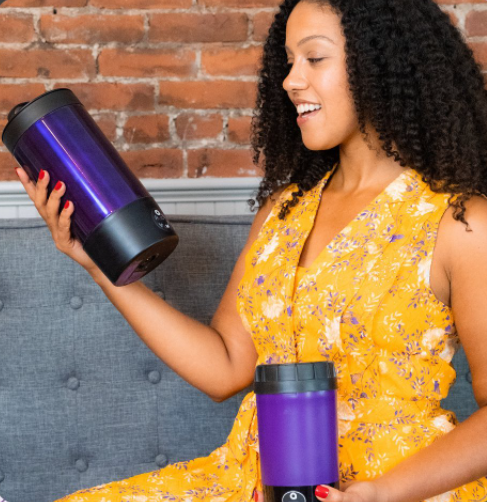Why Talking About ‘The Black Cannabis Experience’ Is Important
Mehka King interviewing Richardo Willis of stemware company—Hanu Labs—at the MJBizCon 2021 in Las Vegas. (Photo Credit: Instagram)
Open The Bible to the Book of Genesis– 2:29--and you will see it plain as day.
“And God said, behold I have given you every herb bearing seed, which is upon the face of all the earth, and every tree, which is the fruit of the tree yielding seed; to you it shall be for meat.”
Ask most believers what this statement means and you'll hear a grocery list of herbs and every fruit and vegetable from apples to zucchini designated to help give human beings the nutrients they need to be 'fruitful and multiply’. One item that's always been left off of that important list are the variations of cannabis that have been pushing up from beds of soil since the beginning of time. It's virtually sacrilegious to even add them to the classification of healthy plants here to aid humans in most circles. Talk about how strains of sativa help to decrease stress and anxiety or how a potent indica remedies pain and be prepared to receive faces of displeasure as immediate reactions. Even as the advent of medical Marijuana moves from state to state like in Washington, Colorado and Michigan where it's fully decriminalized–the blowback still continues. Mehka King, Creator and Host of the CashColorCannabis podcast, has been actively destigmatizing the negative undertones linked to the conversation of marijuana since his first episode in 2016 over 300 episodes ago. While many similar podcasts only address the plant's therapeutic medicinal properties, King continues to build his platform from the perspective of telling all his thousands of listeners about the ‘Black Marijuana Experience’.
"We’ve had a lot of people come through the studio to have a conversation about cannabis and what it means to our community and why there is such a difference in how we view cannabis versus how others view it,” King says from his home in Atlanta. “It is a different conversation for people of color.
Mekha King preparing for his podcast, CashColorCannabis, at Live HipHop Daily Studios in Atlanta. (Photo Credit: Instagram)
By his own account, King had no real interest in doing a podcast at first. This journey towards advocating for marijuana as a whole started while he was shooting a documentary film called ‘The Color Green’ which focuses on the marijuana industry and systemic practices behind the growing business of historically incarcerating people of color over marijuana possession and distribution. During the laborious task of post-production for the documentary, he found himself in Atlanta doing an interview at The Good Hennec Show with the host Last Name Good. The interview was a platform-expanding moment as Last Name Good suggested that King should try standing up from the director's chair and move to in front of the camera’s lens with a microphone to discuss the topic at greater length. This was pivotal. From this vantage point, King was able to engage in free-flowing conversations with guests to help put a new face to a segment of our community who don't fit any misconceived stereotypes when it comes to medical marijuana patients.
“In my household alone there are three generations of people who think three different ways about cannabis. My mother who was raised in the Civil Rights era, she’s not with weed. She met my dad at a jazz club and knows how most musicians in those circles get down and she still sees it as a ‘drug’ to her. She loves that I have a podcast, but she wasn’t with marijuana then and she’s not with it now. On the other hand, I came up in the 1990s when Snoop Dogg said he was ‘slim with the tilted brim’, Redman had a song called ‘How To Roll A Blunt’ and Method Man was telling everyone to go get their ‘fat bags of skunk’ and ‘White Owl Blunts’. As far as I was concerned, weed was just something people did. It wasn’t like the horrible drug I saw people doing when I was coming up in Boston which was crack cocaine during the 1980s–and I wanted none of that. So to me weed was cool.” King then shifts to the current generation. “But for my nieces and nephews, they’re coming up at a time when there was a Black President and marijuana is legal in certain states–two things I would’ve never thought would happen growing up. This is how we’ve been forced to look at it.”
Members of the CashColorCannabis network enjoying the chill vibe at yesterday’s Night Before 4/20 Party in Atlanta. (Photo Credit: Instagram)
The fear of the random brutality and judicial penalties both attributed to race and class within the already confining societal norms placed upon our mobility has always indirectly governed how we move, think and operate in America. So it makes perfect logical sense for people who lived during the same decades as King's mother would devalue the potential worth of medical marijuana when equating the risk they still associate with it. For decades, this illegally imported or discreetly grown cash crop elevated the lives of many street-corner dealers to lavish downtown apartments before arrests and legal-aid trials to sharing cells with violent offenders for 20-plus-years in the state penitentiary. This was part of the now admittedly pointless 'War On Drugs' that still targets mainly people of color today. One, that in time, has proven to be hypocritical at the core against marijuana dealers as US-funded contras fought a secret war in Nicaragua on money earned through our addictions to cocaine that was eventually cooked into rock form over neighborhood stovetops. No commercials for resort-style treatment facilities offering help to black addicts get better, just the new role for them as another statistic that fans of Nancy Reagen could point at to build their claims of lengthier sentences resulting in more free state labor. The cycle continues. It's a fine hard line that a champion of medical marijuana like King sees that comes down to the brand of illegality forever assumed with people with deep shades of melanin.
Mehka King laughing in studio with Boxer Evander Holyfield Jr. (Photo Credit: Instagram)
"You look at the hippies of the 1960s with weed. What they did was frowned upon, but they weren't getting beat upside the head over it. But you take a black kid in Roxbury or in Harlem rolling up a joint and next thing you know–'woop-woop'--the police are coming." A point that he admits gave support to his mother’s fears before moving to another perception of the blatant double standard that unfortunately works internally within our community. "When I first started CashColorCannabis, people would always ask me if I was scared of getting 'caught'. And I would look at them and tell them how High Times Magazine has been writing about and advertising marijuana in its issues for over 40 years on newsstands and no one has asked them the same question. We've done in-person shows and I know for sure there have been undercover cops at our events because they were positive that it had to be more than just 'a conversation' going on. We really need to get past this fear."
Equity starts on the other side of that stigma. The Great Migration of the early 20th Century made many of our forefathers and foremothers leave their quaint homesteads in the South for the opportunity of lives without the persecution they experienced during the chaotic time of Reconstruction. Their tilled beds of land bursting with growing crops changed hands to owners who absorbed the monetary gains meant to them. The equity that this brave new world of cannabis presents to their great-great-grand children's children is the prospect of gaining a secure foothold in an industry that–according to the Forbes Magazine article from last June–will be worth $43 Billion by 2025. Say less. However, King states it's all about diversity not just with race, but in the services to truly level the field in the industry and within our own communities as well.
"We've seen more black faces on the other side of the counter when it comes to owning dispensaries,'' King starts optimistically. "They've done the marathon work of signing all the paperwork and legally financing everything. I would like to see more black leaders in the industry get black people in all avenues in this new field on the growing side, the dispensary side–even if it's real estate that they can grow marijuana on–there are so many ancillary jobs we should be getting into at this time."
In 2020, Jay-Z started his Monogram line of flower 'curated' for all moods that runs the user's experience from 'Making Art', 'Exercise', 'Socializing', 'Watching Movies' even 'Sex'. When These tailored experiences are purchased, a percentage goes to the company's Social Equities Ventures Fund which was started to create inroads for black entrepreneurs, expert growers and others with a true interest in staking claim to part of this new age cash crop. The intent is to increase the number of black medical marijuana licenses which is currently below 5% nationwide. Ingenuity also gives way to opportunity. With any new marketplace, there are areas of need that go unserviced in the beginning. Manufacturing is one of them. Ardent, a black-owned cannabis kitchenware company in Boston, is making skeptics rethink the ways strains of flower and concentrates can be enjoyed without ever inhaling. CEO and Founder Shanel Lindsay developed a line of decarboxylation machines that allows you to best infuse your flower and concentrate into butter for cakes, stock for soups, oil for dressing and balms for skin. The menu is as vast and creative as the chef's imagination. Singer Kelis used Ardent's NOVA in the kitchen on her Netflix series 'Cooked With Cannabis'. With an ever-growing landscape of advancements, now is the time to start realizing the potential of this major game-changer for communities through commerce-based participation. This is why Mekha King's platform for CashColorCannabis is so important in pushing the idea forward through conversations.
The creators of Litty Bees, the homemade infused honey-based sweets with THC that is a must-have, in-studio for an episdoe of CashColorCannabis. (Photo Credit: Instagram)
"I'm not super pressed to only have people in the Cannabis Industry on the show," King says. "Our show was based on talking to the cannabis consumer and those who are canna-curious who are kind of into it, but want to know a little more. Some of my favorite live shows are the ones with people who have nothing to do with cannabis, but they can come and sit down and talk about things with other people. Here is where we can really destigmatize what people think about marijuana.”
The upside to all of this is that there's still more room to grow in the space that financially brings us back to the soil. Here is where we can purposefully build systems of change for the young entrepreneur looking to break generations-worth of debt and for the thankful community member who has no idea how the playground near her home got restored for the children–the ripple effect could be endless. As great as this sounds, it all begins where Mehka King is daily–behind the microphone leading the conversation about cannabis with anyone.







